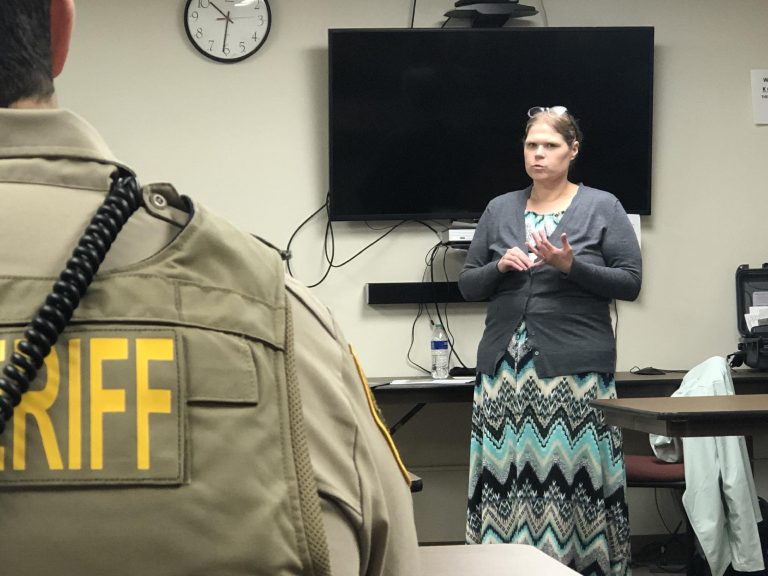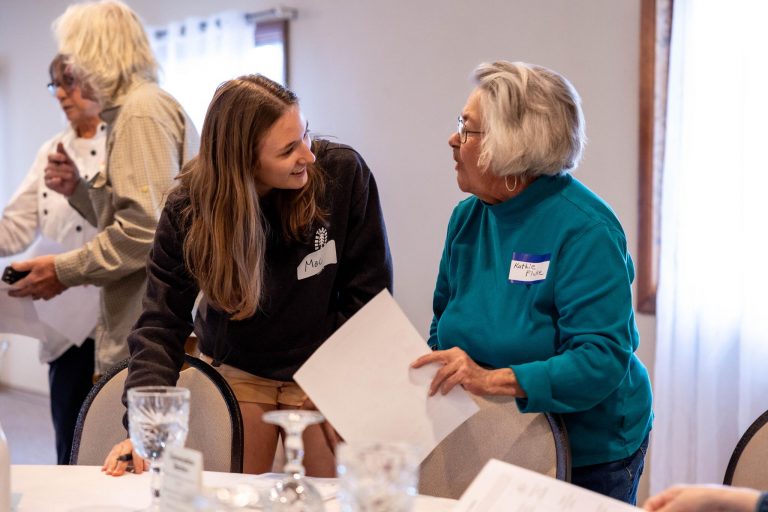By LAUREL BEAGER
LBeager@cherryroad.com
Most everyone has encountered someone experiencing dementia, often caused by Alzheimer’s disease. But they may not have known it at the time.
Local law officers are more and more likely to encounter someone experiencing dementia in the community. How someone with dementia may respond to an encounter with an officer and how an officer approaches them could make a huge difference in the outcome.
A presentation by Jenna Pogorels of the Alzheimer’s Association last week was aimed at helping police identify behaviors that may be caused by dementia and provided tips on how to assist people experiencing dementia.
Pogorels met with members of the Koochiching County Sheriff’s Office and International Falls Police Department Friday to talk about situations they have had or may have that may be caused by dementia behaviors.
She pointed to contact they make with people for wandering, driving offenses or car accidents, shoplifting or other disruptions at shops and restaurants, and contacts that may involve firearms.
Adding to those situations the behaviors caused by dementia require an understanding by law officers to help lead to a positive end to an encounter, she said.
10 signs
Pogorels urged the officers to become familiar with the “10 warning signs of Alzheimer’s,” and consider them when responding to calls:
1. Memory loss that disrupts daily life
2. Challenges in planning or solving problems
3. Difficulty completing familiar tasks
4. Confusion with time or place
5. Trouble understanding visual images and spatial relationships
6. New problems with words in speaking or writing
7. Misplacing things and losing the ability to retrace steps
8. Decreased or poor judgment
9. Withdrawal from work or social activities
10. Changes in mood and personality
Pogorels said police should consider that someone with dementia may not understand their requests or directions, so may not answer them, or may respond with agitation and aggression. Using simple terms spoken slowly may help, she said.
The behaviors may be an attempt to communicate their needs or express their feelings of fear or frustration. Often, she said, they just want to have someone listen to their worries or concerns, which may range from not knowing where their home is to a delusion about a theft by a family member.
“Join in their reality,” she said. “Don’t say ‘that’s not real,’ don’t argue. That will make it snowball.”
Approaching from the front, identifying themselves in gentle and calm voices can help officers to put someone with dementia at ease, she said.
Pogorels presentation to the police and the public last week is a part of an effort to raise awareness of dementia, and to make Koochiching County dementia friendly. It’s led by Koochiching Aging Options, which offers dementia support services. Contact KAO at 218-283-7030, KoochichingAgingOptions@gmail.com and see the website at www.KoochichingAgingOptions.org




